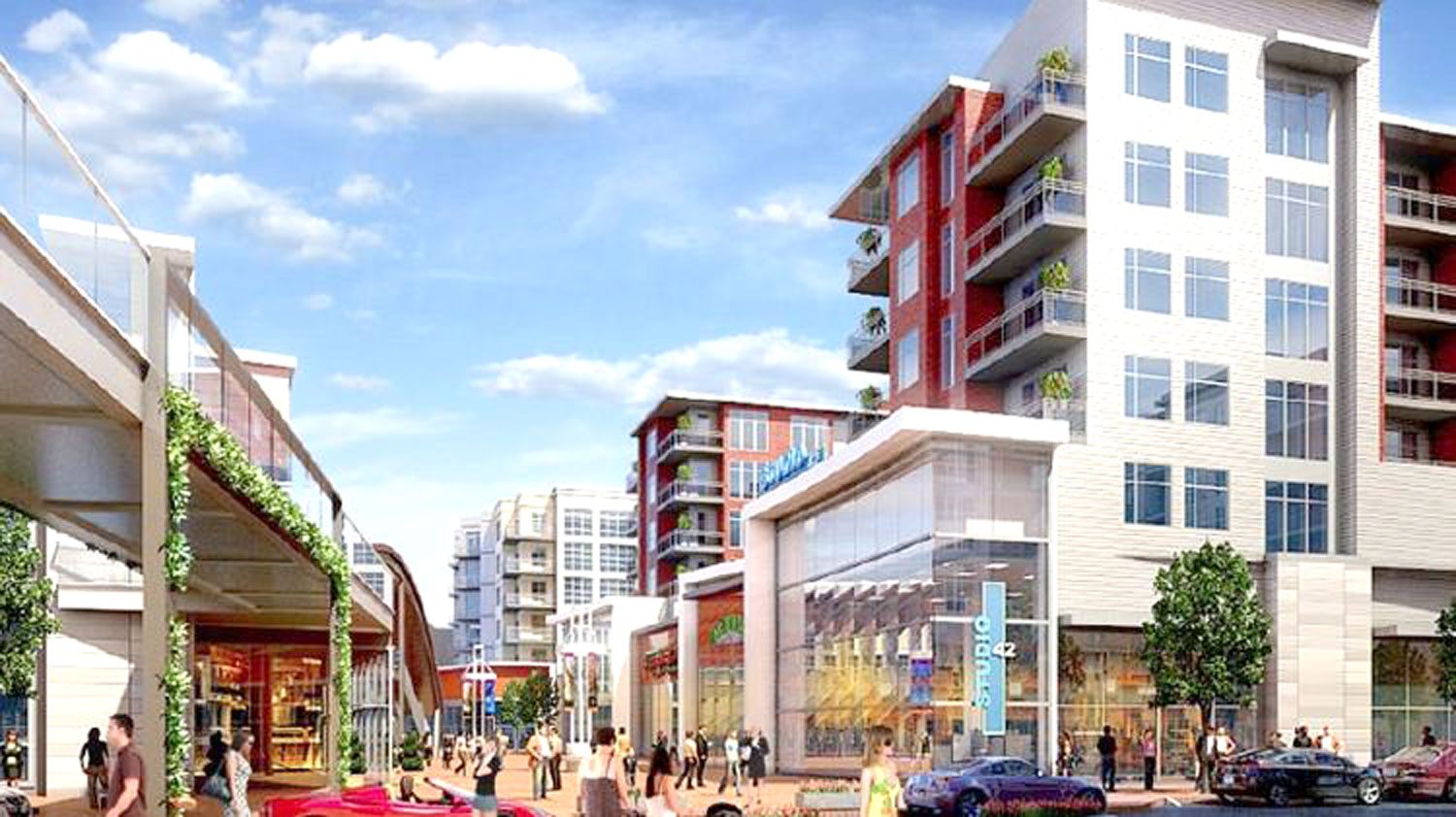PEABODY — The Northshore Mall has everything: more than 140 shops, four cafes, and even a bakery for pets.
Now, the city is considering housing at the 2 million-square-foot shopping center.
Under a proposal which has received preliminary approval from the City Council, the mall would be rezoned to allow construction of apartments or condominiums.
“There’s a lack of housing in Massachusetts and especially in Peabody,” said Curt Bellavance, the city’s Community Development director. “Our view is we need more housing and this is one way to do it.”
The idea, he said, is to encourage housing in business districts, where residents could live near shops. The draft proposal contemplates four- to five-story buildings that would fit the mall and the surrounding neighborhood.
Proponents say the concept is not new. Somerville’s Assembly Row, the 400,000-square-foot mixed-use development along the Mystic River, offers a mix of retail and housing in the 28-acre district. There’s also MarketStreet, the successful open-air mall with apartments in Lynnfield, just off Route 128.
Bellevance said Simon Property Group, the nation’s largest mall owner which operates the Northshore Mall, does not have immediate plans to build housing.
“They’ve said it’s something they may consider in the future,” he said.
Mark Whiting, the mall’s manager, did not return calls seeking comment. A Simon spokeswoman said she had no information to share.
Given the collapse of major chain stores like Sears and Toys “R” Us, developers and housing advocates say it’s an idea Simon should fast-track.
In a conference call with analysts in February, Simon’s CEO David Simon said his company is worried about more retailers with high debt declaring bankruptcy and ending their long-term mall leases, according to Bloomberg News.
The zoning amendments, which require Planning Board approval, would allow construction of four- or five-story buildings on most of the mall, including the former Sears store. In addition, several parcels on Cross and Prospect streets and Route 1 South would get the green light for housing.
Among the other locations include the former Lahey Hospital & Medical Center’s MRI facility on Prospect Street.
In addition, if approved, the proposal would replace underused parcels housing at 190, 190R and 176 Newbury St., better known as Route 1, including Mac’s Trailer Park, a mobile home park with 22 lots.
A developer who said he was part of the team that built the Latitude Sports Clubs plans to close soon on the 3.7-acre parcel located behind the health club.
“We originally wanted to do a hotel, but neighbors opposed that idea,” said Arthur Pimental, a Peabody builder. “But residential is a better fit and we’re looking forward to working with the city if the idea is approved.”
While the concept is in its infancy, Pimental said his company prefers to build condominiums given the lack of units for sale. At press time, the MLS Property Information Network listed just eight condos for sale in Peabody. The offerings range from a two-bedroom at Tannery Gadens on Foster Street for $219,900 to $434,900 for a two-bedroom townhouse at Huntington Wood.
Pimental declined to say how much he will pay for the site, which is owned by the John R. Grossi Backland Realty Trust. It is assessed at $238,600, according to property records.
Ward 5 City Councilor Joel Saslaw, whose district includes the Route 1 South site, said the parcel at the rear of Latitudes has been underused for years. It once housed a landscaping company, he said.
“If the right building is constructed, it will improve the quality of life for the neighborhood,” he said. “We are trying to find land to build housing that will make a positive contribution to the area. If the zoning change is approved, I will work with the developer to make sure what gets built fits the neighborhood.”
Councilor-at-Large Anne Manning-Martin lobbied the council to boost the affordable housing requirement in the new district to 25 percent, up from 15 percent. Her measure was approved unanimously.
As a result, a housing development in the newly-zoned areas with 100 units would have to reserve 25 for income-eligible tenants or buyers.
Manning-Martin said she expects opposition to the proposal from developers and their attorneys.
“They will argue the requirement will allegedly cut into their profits,” she said. “But we have a housing crisis in Massachusetts. I think we can reach an agreement because they are able to be built in places where they couldn’t build before.”

